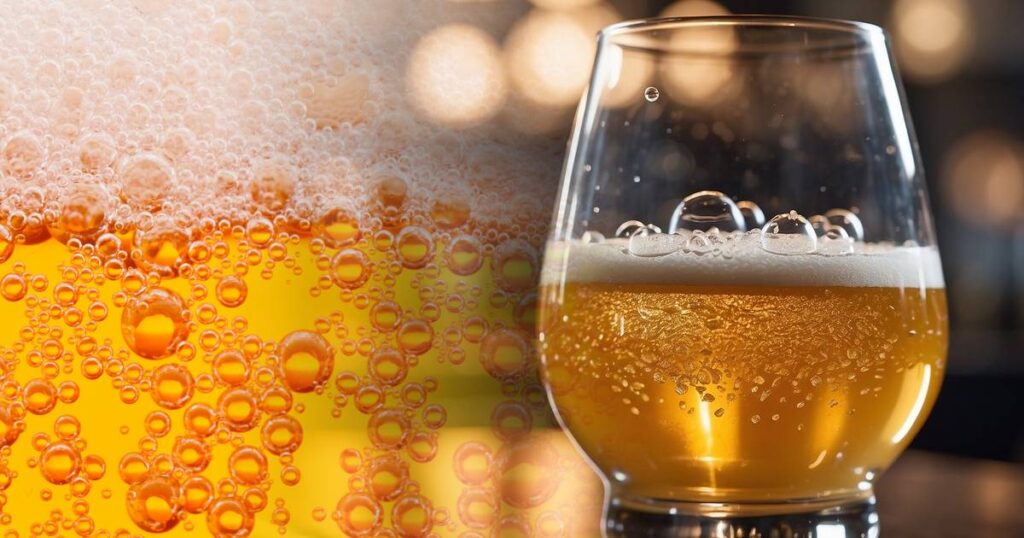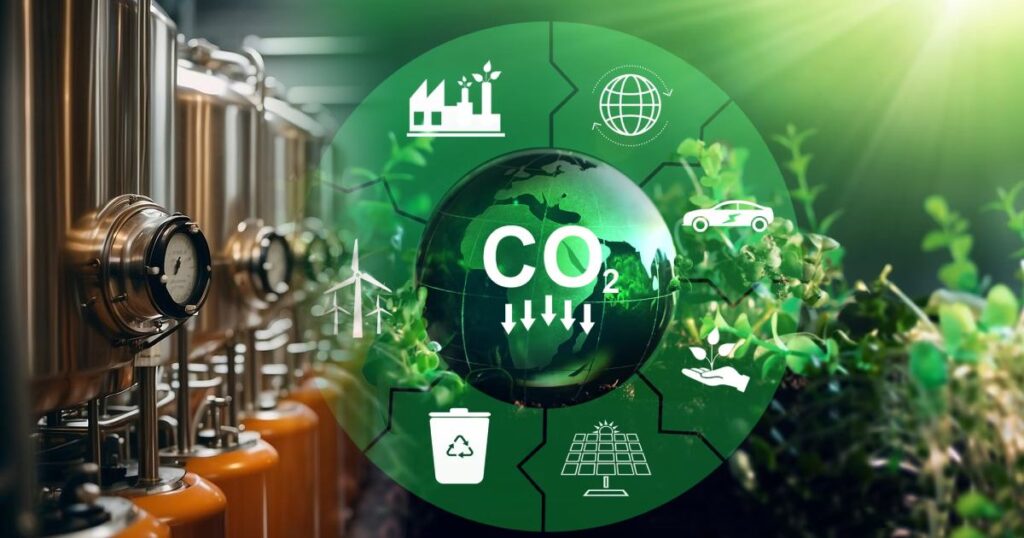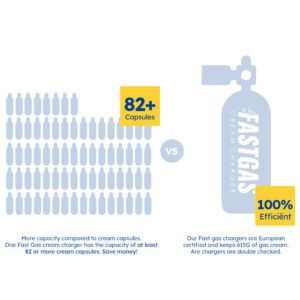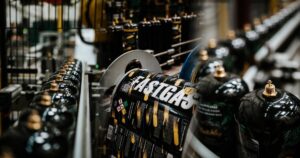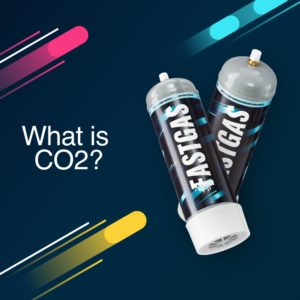CO2 in Craft Beers: Understanding Carbonation Levels
FastGas Blog
Carbon dioxide, or CO2, is essential in craft beer production, playing a critical role during and after fermentation. As a craft beer enthusiast, you are likely aware of the impact CO2 has on the taste, texture, and presentation of your favourite brews. CO2 is infused into beer to create the enthusiasm that gives beer its characteristic fizz and contributes significantly to mouthfeel and flavour. Beyond carbonation, CO2 is also utilised in various stages of the brewing process, including transferring beer between tanks and packaging. It helps prevent oxidation, which can spoil the delicate flavours crafted by brewers.
The supply of CO2 has faced disruptions, leading some craft breweries to adjust their operations. A stable supply of this gas is essential to maintain both beer quality and brewing operations’ efficiency. Innovations such as FastGas cylinders have been critical in ensuring the availability of CO2 for beer production. Craft brewers must navigate this landscape by exploring various sources and technologies, such as CO2 recapture systems, to ensure a consistent supply for their beer carbonation needs, helping to sustain the quality and unique profiles of their craft beverages.
Key Takeaways
- CO2 is crucial for beer carbonation, affecting beer’s taste and quality.
- Craft breweries rely on a steady CO2 supply for various stages of production.
- Recent CO2 shortages have prompted breweries to seek innovative solutions.
The Role of CO2 in Brewing
Carbon dioxide (CO2) plays a critical role in the production of craft beer, influencing not only the beer’s carbonation but also its overall flavour, aroma, and mouthfeel.
Carbonation and Beer Quality
Carbonation is essential for creating the effervescence and crispness you expect in a good beer. By adding CO2, breweries can ensure their beer has the desired fizziness level. Whether through natural carbonation during fermentation or forced carbonation using equipment like FastGas cylinders, the amount of dissolved CO2 is crucial for the final product’s sensory qualities.
Fermentation Process
During fermentation, yeast consumes sugars to produce alcohol and CO2, a byproduct of this biochemical reaction. The precise control over this natural CO2 can define your beer’s mouthfeel and flavour profile. Managing the levels of CO2 in beer throughout the fermentation is key to the quality of your craft beer.
CO2 Recovery and Sustainability
Sustainability in the brewing process is becoming increasingly important. By implementing a CO2 recovery system, you’re reducing costs and your brewery’s carbon footprint. These systems capture the CO2 produced during fermentation, cleaning and storing it for later use. They can both carbonate future batches and perform tasks like transferring beer between tanks, promoting a more sustainable brewing operation.
Challenges and Solutions in CO2 Supply
In the craft brewing industry, your ability to produce quality beer depends significantly on the supply and management of CO2. The challenges of a CO2 shortage can affect your brewery’s operations, product safety, and sustainability efforts; however, innovative solutions are emerging to address these concerns.
CO2 Shortage Impact on Operations
CO2 for beer is a critical component for packaging and carbonation processes in your brewery. A shortage can lead to production halts and impact your bottom line. The supply chain disruption, often due to factors outside of your control, like plant outages or transportation issues, necessitates that you explore multiple suppliers to mitigate risks. Maintaining a buffer stock of FastGas cylinders could be a strategic move to ensure uninterrupted operations.
Maintaining CO2 Quality and Safety
The quality of CO2 is paramount, as impurities can lead to taste deviations and potential safety risks if contamination occurs with substances like ammonia. Regular testing for dissolved oxygen and other contaminants is essential. The Brewers Association provides guidelines to help you maintain a standard of CO2 purity, ensuring the safety and taste of your beer remain uncompromised.
Innovations in CO2 Recapture and Alternatives
Innovative CO2 recapture systems are becoming more viable for craft breweries, turning a byproduct of fermentation into a valuable resource. Systems like Pentair’s CO2mpactBrew allow breweries to become more self-sufficient, reducing reliance on external suppliers. Additionally, alternatives such as nitrogen can be utilised for specific beer styles, offering a unique mouthfeel while reducing the need for CO2. This switch can also differentiate your product range, giving you a competitive edge during carbon dioxide shortages.
Frequently Asked Questions
This section provides detailed answers to some questions about CO2’s role in craft beers, from carbonation to sourcing.
How is carbon dioxide incorporated into craft beer production?
Carbon dioxide is a crucial ingredient in craft beer production. During fermentation, yeast metabolises sugars to produce alcohol and CO2. Further, beer carbonation occurs by injecting CO2 into the beer until a desired level of carbonation is reached, which is critical for the overall mouthfeel and aroma of the beer.
Can the presence of CO2 in beer have any adverse health effects?
When consumed in moderation, the presence of CO2 in beer does not typically lead to adverse health effects; the levels of CO2 in beer are generally safe. Excessive consumption can lead to bloating and discomfort due to excess gas, as well as the general risks associated with alcohol consumption.
What are standard CO2 to beer volume ratios used in craft brewing?
Craft breweries often aim for CO2 volumes between 2.4 to 2.8 times the volume of the beer, depending on the beer style. For instance, lighter beers might have higher carbonation levels, while heavier, more robust ales may have lower levels.
Where do craft breweries typically source their CO2?
Craft breweries generally source their CO2 from commercial suppliers that can provide food-grade quality. This CO2 is purchased in liquid form and then transformed into gas on-site for various uses, such as carbonation and transferring beer between tanks.
What impact does the brewing process have on CO2 production levels?
The brewing process naturally produces CO2 during fermentation. However, more than the amount paid is needed for the full production needs; hence, additional beer CO2 is sourced externally to complete the carbonation process and packaging.
What are the implications of the current CO2 shortage for craft breweries?
A shortage can lead to operational challenges and may provoke craft breweries to find alternative carbonation methods or conserve CO2 usage. This can influence the overall supply of craft beers in the market and potentially increase production costs.
